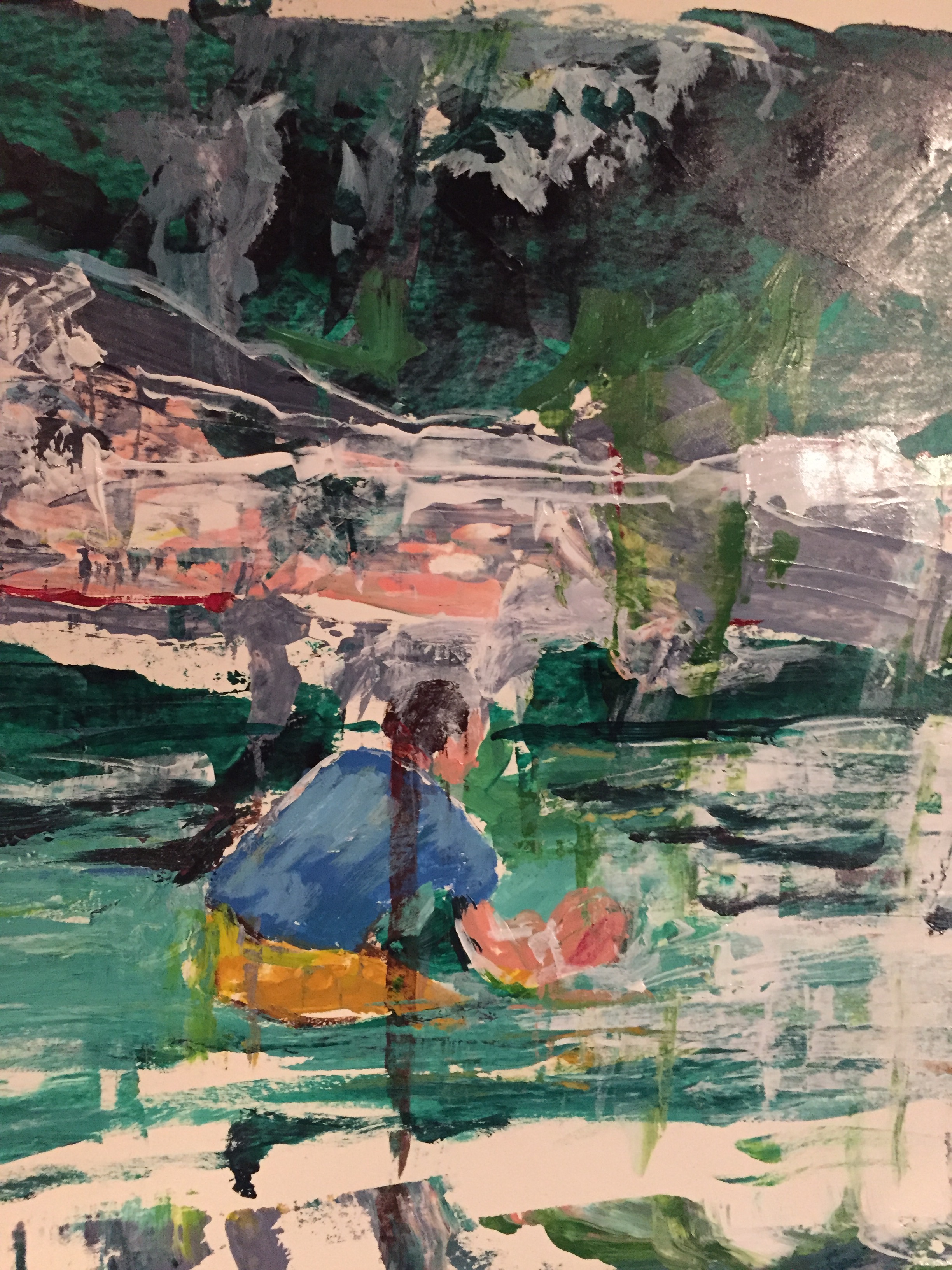I Have Decided
Mad River, 1988
There were maybe a dozen witnesses, a couple of carloads, with kids ranging in age. It was August and overcast, close to the coast. It must have been a Sunday, after church. The meeting, we called it.
They stood on the banks of the Mad, somewhere between Kneeland and Arcata. The Mad runs north from the Trinity Alps through timberland, heavy with sediment load sloughed off logging roads and carried down creeks through clear-cut swaths. Milky turquoise water, dirty-blond rock, green riparian fringe.
The women wore dresses, covered their heads, stood proudly demure. Singing belief in the Anabaptist habit. They looked like pioneers, a patchwork quilt hung in the wind. They eyed the river as if seeking a shoal to cross.
The kids you could’ve mistaken for the residue of the Humboldt hippy ethos (our group was communal—potlucks, tool-sharing, work parties, a general predilection for home-birthed, home-grown, and home-sewn), home-schooled with mail-order Christian curriculum. They looked innocent, dorky, cultish, singing along with their parents.
The men burned with evangelical energy. They had changed into river clothes, shorts and t-shirts and sneakers, but were somehow more solemn for the casual contrast. They led us in prayer. They uttered the names of those who would walk into the river. Everyone nodded and said amen.
I wondered then what they, the believers, saw in my face. I could not talk to god, and I felt perpetually embarrassed around people who (said they) could. And I was scared of the water, scared that the moment I was saved would be the moment the current caught me. I would see the bank of faces receding. I would panic and flail, sink, swallow water and go quickly cold. But I couldn’t imagine an end of consciousness. I thought I would slide with the silt to the breakers and be found on a pyre of driftwood. They would light it on fire, still singing, and I would burn, but my mind would remain among the living, and I would finally be able to go wherever I wanted, to bear witness to another reality, to normalcy. This may have been a result of all the talk of eternal life. Nobody bothered to explain why we wanted to live forever. And at no point was baptism described as symbolic.
It has always seemed certain that the search for religion selects for, and reinforces, what’s found. I think I felt this long before I could articulate it. Though I don’t know. The search for the words might be what produced the effect of my “knowing.” I know enough about how language occurs to me to allow for that. And a feature of this knowing is that I think I felt it before. But by the time I was born, for sure by the time I was baptized, born again, my father’s search was long over. He knew all he needed to know about his god’s saving grace. So when he pulled me aside in the serious tone he reserved for matters of the soul and asked the question—are you ready to be baptized?—he might have believed he was giving me a choice.
I pretended to consider the question. This was the beginning of feigning seriousness to protect my father’s feelings. His anticipation of the outcome led to the outcome.
These were my first fictions, the faces I made to betray his faith. To this day I wish he had called me on it. Or I wish I’d said, “No. I can’t. I don’t know what it means. I’m sorry. It’s too much to believe.” And I would have said it if I thought he’d agree that faith should not be thrust upon the young.
